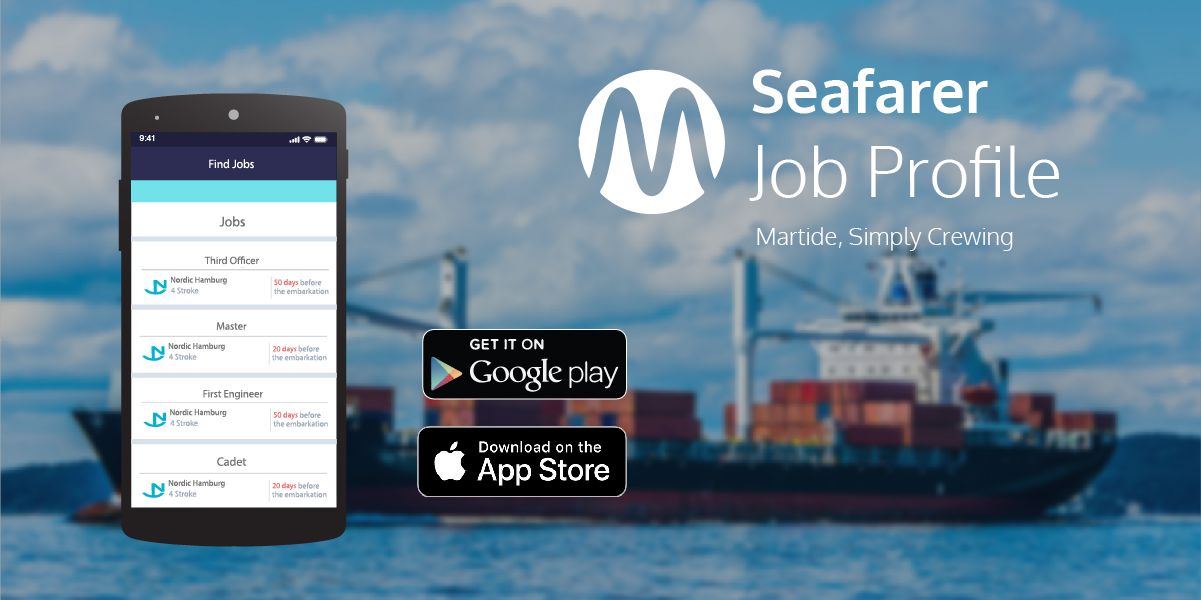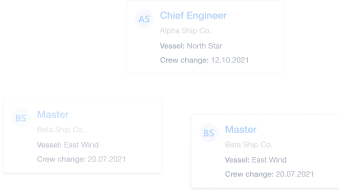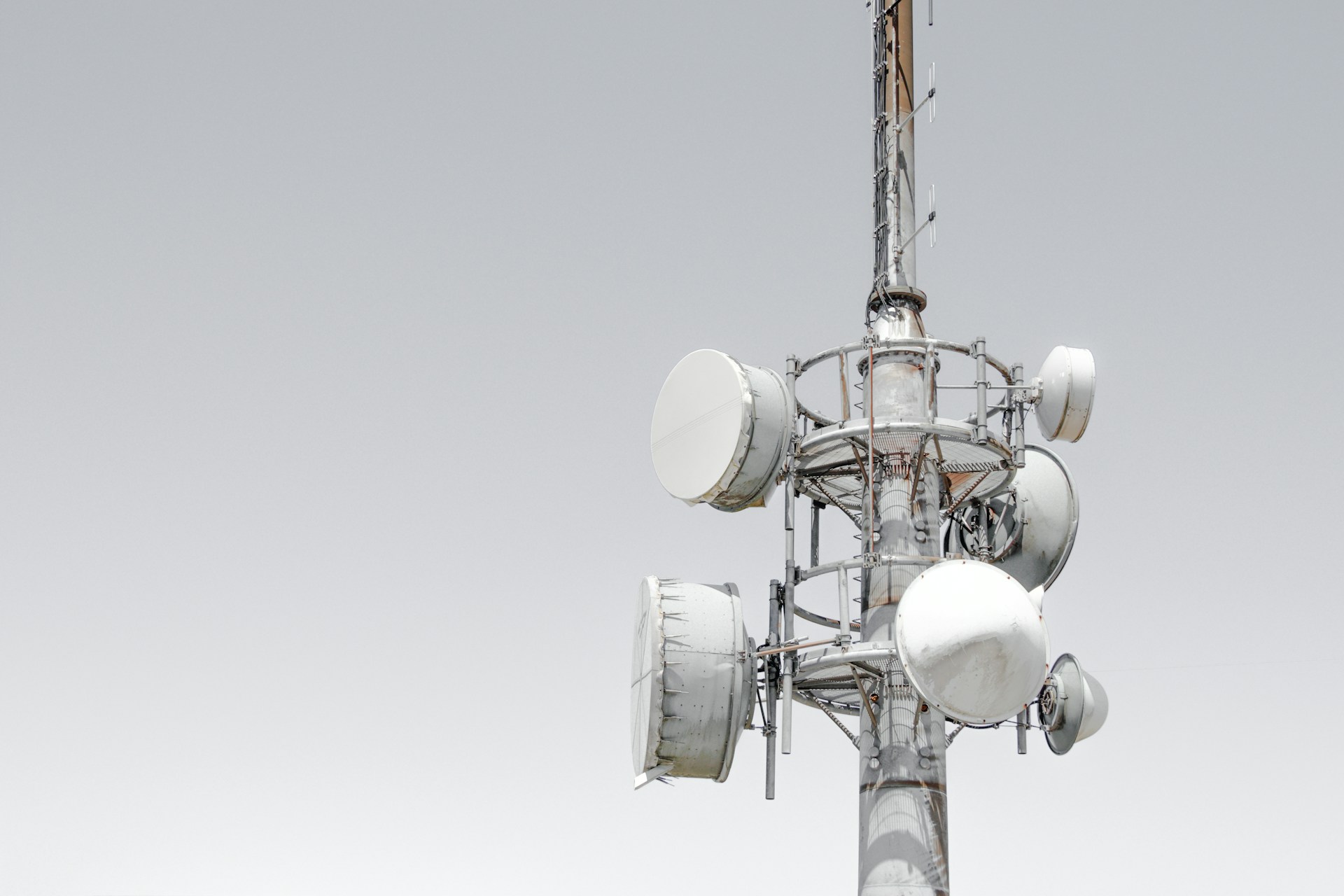How to Use Social Media Wisely When You Work in a Job at Sea
Jul 16, 2020 · 22 mins read ·
Life at Sea
When working in jobs at sea, social media and seafarers may not always make the best bed fellows. Even though life at sea is very different now to the old days of “what happens at sea stays at sea” there is still the potential of unflattering or downright career-ending photos and posts being seen by more than just your crewmates.
The internet plays a massive part in most of our lives: whether we’re checking our news feeds, searching for jobs at sea online, catching up with the latest sports results or political news, or sharing our photos and selfies.
There’s no denying that social media is a powerful tool and for many people checking their shares, likes, retweets and upvotes becomes a daily - if not hourly - routine. In fact if you’re one of those people you might not even realize how often you check your social media accounts.
(And if you’re one of those people who’s not that bothered about being sociable online you probably find your friends’ obsession with Facebook etc. weird and kind of a little bit annoying!)
How to use social media wisely when you work in a job at sea: stop killing your maritime career!
If you're working in seafarer jobs for you your job and a typical life at sea means spending months away from home. And that means that social media very often becomes a real lifeline in every sense of the word.
But with that lifeline comes responsibility and the need to exercise a little caution for the temptation to vent crossed with being away at sea for a few months can lead to making all-too public mistakes.
Depending on your point of view, social media can be a blessing or a curse - or a combination of the two. It’s great to be able to stay in touch with family and friends ashore through Facebook Messenger if your vessel has WiFi.
But it can also leave you falling foul of rules and regulations onboard ship if you post something that’s inflammatory or a potential breach of security.
And that’s not even taking into account the effect - both good and bad - social media can have on your career at sea.
Read more: 13 YouTube Channels about Seafarer Jobs to Check Out
Probably the biggest takeaway here is to stop before you hit send and think “What would my superiors or my family think about this post?”
And if you’re about to start looking for a new job or contract in the maritime industry, you can add recruitment companies, potential employers and manning agents to that list too!
Read more: 7 Maritime Themed Twitter Accounts to Follow
Misuse of social media can be career suicide
Put simply, there are no secrets in social media and this means that depending on how you have your privacy settings configured, anyone can see what you post.
Let’s face it, you could write the best seafarer resume in the world but if you were a shipowner looking for crew members for your vessel, would YOU want to hire the seafarer who was constantly posting drunken selfies or racist tweets? Probably not.
A recent survey showed that 70% of employers check a candidate’s social media profiles during the hiring process.
That’s because these days checking out a candidate’s social media profiles is a quick and easy way for recruiters and companies to get a real feel for the person they’re considering hiring.
Read more: What is World Social Media Day All About?
And you might have impressed them with your maritime resume and charmed them during a Skype interview, but if one look at your Instagram shows you to be out of control, disrespectful or a trouble maker, they’re going to think twice about signing off on your contract.
Use your social media profile to sell yourself
It’s true what they say: first impressions do count and while we’re not suggesting you delete every photo or meme you ever posted to Facebook or Instagram, take an honest look at your pictures and posts and see if they could be off-putting in any way to a crewing firm or employer.
Delete the dodgy tweets and non-stop party pics and instead use your social media profile to make you stand out in a good way to a potential employer!
So yes, social media and seafarers can be friends! With many employers actively using sites such as Facebook, Twitter and LinkedIn to post open jobs at sea and to search for new crew members, chances are you could land yourself your next contract at sea through social media too.
Read more: How to Create a Standout LinkedIn Profile to Win Seafarer Jobs
That's another reason why you should be making sure you’re showing yourself in the best light possible online.
How to detox your social media accounts
A basic rule of thumb when you’re giving your social media accounts an audit is to use common sense.
Be polite in your comments. Don’t make inflammatory or hateful remarks. Respect other races, cultures, religions and points of view.
This is something that is particularly important in a maritime career where you'll be working with people from different backgrounds. It's about being a good crewmate too.
The old adage "if you can’t say anything nice, don’t say anything at all" was made for social media. And remember that nothing can be unsaid - we have screenshots to thank for that!
Read this: The Seafarer's Guide to Creating a Twitter Profile
Once you’ve got rid of anything that you think could stand between you and your next seafarer job, once again check your privacy controls.
Companies like Facebook update their privacy policies regularly so you should ensure you stay on top of this by checking your settings every month or so.
Of course not all social media platforms are the same: some are more visual like Snapchat or Pinterest, some have a professional vibe like LinkedIn where you can find more focus on vacancies for seamen, and some are complete free-for-alls like Facebook and Twitter!
The benefits of social media for those working in a seafarer job
However, whether Facebook, Twitter, Instagram, LinkedIn, TikTok, Telegram, Pinterest or Snapchat is your platform of choice, the benefits of social media for seafarers are undeniable.
The ability to stay in touch with friends, family and partners from even the most remote corner of the globe is a real advantage. And it works both ways, giving you the opportunity to share a little of your experience working in maritime jobs with friends and family back on shore.
Being able to check in and say goodnight or good morning to your partner, spouse or children is a great way to stay positive and connected even when you’re thousands of miles away at sea.
Social media is also a great informer and if you’re one of those people who is working in jobs at sea, if you can connect, being able to keep up with the latest football scores, the latest happenings in your home country or just some good old fashioned celebrity gossip can provide some entertainment in your downtime between watches or shifts.
Being as up to date as it’s possible to be when you’re away in seafarer jobs is also a great conversation starter with other crew members.
After all, no matter what country you come from and language you speak, you’re bound to find someone on board who will be more than willing to discuss the latest Manchester United, Liverpool or Real Madrid scores!
So, we can agree that social media can play an important role in keeping you connected and entertained in those occasional moments when loneliness or boredom kicks in.
But it’s back to the point of this blog post: why you need to be careful with your social media usage - and that goes for whether you’re working in seafarer jobs or in jobs in ports or shipping offices ashore.
So what are some of the other ways you can use your profiles to your advantage?
Jobs at sea: how to make social media work for you
We’re taking a look at Facebook, just because it’s the social network with the most users (3 billion as of writing) and you probably have an account!
We do too - go follow us and check out our daily job posts.
We’re one of those people we mentioned earlier who are recruiting for seafarer jobs through Facebook!
3 tips for making your Facebook profile employer-friendly
1. Choose a profile picture that shows you in a good light
Facebook isn’t a professional networking platform so you don’t have to be formal but it might be best to go for a profile pic that’s flattering, shows your face and just makes an all-round good first impression.
2. Update your profile
One thing employers or recruiters are looking for when they check you out online is to make sure you are who you say you are. By filling in your profile: your real name, current position and employer, and where in the world you live (or are currently based) you’ll give them more confidence in you as a potential recruit.
3. Don’t shoot yourself in the foot!
Okay, we’ve covered not posting derogatory or offensive posts but have you ever wanted to log in to Facebook and blow off steam about your employer, master, chief officer etc. after a hard day’s work?
Don’t! There are countless stories in the news about people who’ve been fired because of unflattering or downright rude things they’ve posted on Facebook about their company or boss. Don’t be one of them!
From entry level cargo ship jobs to Chief Officer jobs: be careful!
It doesn’t matter whether you’ve got years of sea time under your belt or you’re just starting out in your career and working in entry level cargo ship jobs: you need to watch what you say in public online.
A degree of self control and a healthy dose of common sense are crucial.
After all, most of us have been there and done that and that Facebook status or selfie after one too many drinks can be embarrassing - at best.
And at worst, one ill-advised Tweet complaining about your boss or workplace can have a devastating effect on your career.
And as we’ve said, the same rules apply to seafarers working in jobs at sea as they do for those working ‘behind the scenes’ in jobs in ports or shipping companies.
Don’t let a foolish, malicious, or poorly thought out post undo all the hard work you’ve put into acquiring your seafarer skills.
So let’s look at a few do’s and don’ts for when you’re tweeting, posting, uploading photos and making short videos.
The do’s and don’t of using social media in seafarer jobs
DON’T tell people you’re going to be away from home
We’ve all read the advice about how you shouldn’t post on social media telling the world that you and your family are off on vacation - it’s practically asking for your empty home to be broken into.
And on a personal level the guidelines that apply when using social media on land still stand.
For example, letting the world know you’re going to be at sea for a couple of months - whether your home is going to be empty or not - is also unwise.
DO check your posts before you send them
Ready to send a post out into the world? Check it before hitting the send button. Does it say anything that might make your current, or a future, employer see you in a less than flattering light?
These days shipping companies will often Google you and check your social media accounts before hiring you and most will not look kindly upon rants and intolerance - no matter how ‘humorous’ the intent was.
Similarly, social media is not the place to air grievances, whether against a fellow crew member, your shipping company, your manning agent, or your supervisor, master or boss.
DON’T run into legal issues
It doesn’t matter which of the seafarer ranks you are, whether you’re working in entry level cargo ship jobs, you’re a chief marine engineer, or you’re shore based in jobs in ports and shipping offices.
In the maritime industry it is especially important to consider the legal implications of what you post.
For example, you might be sending out a Tweet that is perfectly innocent in your home country - but can the same be said for the region you’re currently in? The last thing you want is to land yourself in hot water due to not understanding the laws of where you currently are.
Seafarer jobs come with a whole different bunch of things to consider that many shore based professions don't.
Read more: 8 Things You Should Never Do in Jobs at Sea
As well as this your vessel will naturally feature heavily in your life at sea but you need to ensure you’re not sharing anything that could mean you fall foul of intellectual property laws.
It can be fun to create and share clips of life onboard such as those showing off your seafarer skills or time-lapse travel.
In fact there are lots of great videos like this to be found, particularly on Twitter. But you would be wise to refrain from posting photos and videos of cargo, locations, security, maintenance work or technical manuals.
And don't post anything that could show your ship or her crew in a negative light - photos of celebrations (even those with non-alcoholic beers) could easily be misconstrued.
DO respect your fellow crew
Your fellow seamen will probably also play a starring role in your time at sea but do check whether they’re comfortable with you sharing pics or videos of them on social media.
Remember that what may seem like a laugh to you may not sit well with their cultural or religious backgrounds and could cause problems for them back home.
We hope you’ve found this social media guide for seafarers useful. The main thing to remember if you’re looking for your next job at sea is that when it comes to social media and seafarers, the way you act on Facebook, Twitter and other websites speaks volumes about how you might behave on board a vessel.
And don’t forget that just as a shipping company or maritime recruitment agency might Google you and check out your social media accounts, they can just as easily do it to others applying for seafarer jobs. The last thing you want is to cause career problems for one of your fellow crewmates.
If in any doubt, read the social media policy of any shipping companies you work for and follow up with HR if anything isn’t clear.
DO follow Martide on social media!
We're on social media too so why not follow, friend or like us!? You’ll find our latest jobs at sea, the latest entry level cargo ship ships, chief marine engineer jobs, cook jobs and more.
We also share our blog posts, useful info for seafarers, Martide updates, fun stuff and more! Find, follow and like us today on: Facebook, LinkedIn, Twitter and Pinterest.
DO log off and hang out with your crewmates
Take an honest look at your social media use - are you spending too much time online and not enough interacting with your crewmates?
If so, it might be time to log off - at least for a short while! By all means check in with your family or catch up with the news, but don’t forget that real life is still going on around you.
Besides, logging off social media also means you'll have more time to find your next job at sea!
DO download the Martide seafarer jobs app
Talking of jobs at sea, Martide's free mobile app for seafarers gives you instant access to all of our vacant seafarer jobs no matter where in the world you are.
Plus you can also apply for jobs through the app with a click of the button and then track and follow up on your applications.
The app is completely free and Android users can download it from Google Play while iPhone and iPad owners can get it from the App Store.
Social media and seafarer jobs: conclusion
The maritime industry, with its need for regulations, deadlines, security and integrity is very different to many shore based jobs.

No one's saying don’t have fun when you’re between contracts and on shore leave but there’s a difference between having a few drinks with friends and going viral for all the wrong reasons!
Want to give your maritime career a boost? Looking for your next contract? Martide has seafarer job vacancies for all ranks and experiences. Register your account now to apply.
This blog post was originally published on April 1st 2019 and updated on September 18th 2023

Eve Church
Eve is Martide's content writer, publishing regular posts on everything from our maritime recruitment and crew planning software to life at sea. Eve has been writing professionally for more than two decades, crafting everything from SEO-focused blog posts and website landing pages to magazine articles and corporate whitepapers.
UK



